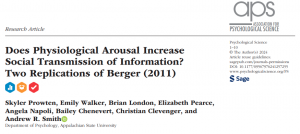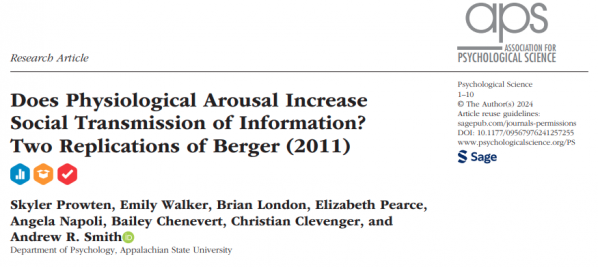A widely cited finding is that news stories that increase physiological arousal (e.g., make people angry or excited) are more likely to be shared with others than low-arousal stories. As part of Dr. Andrew Smith's Research Practicum graduate class, MA students Skyler Prowten, Emily Walker, Brian London, Elizabeth Pearce, Angela Napoli, Bailey Chenevert, and Christian Clevenger replicated a classic study demonstrating this finding. In the following semester, still under the direction of Dr. Smith, they conducted an additional study. Neither study found evidence that physiological arousal increased people's willingness to share news stories on social media. These studies improved upon previous research in this area and thus call into question whether physiological arousal is a driving force in the social transmission of information. This research was recently published in the journal Psychological Science. We congratulate Dr. Smith and his students for this accomplishment!
Prowten, S., Walker, E., London, B., Pearce, E., Napoli, A., Chenevert, B., Clevenger, C., & Smith, A. R. (2024). Does Physiological Arousal Increase Social Transmission of Information? Two Replications of Berger (2011). Psychological Science. https://doi.org/10.1177/09567976241257255

